I copy recipes.
I don’t mean I find them online and print them. I don’t even photocopy from other sources. Instead, I go to the library and choose a cookbook that interests me. Then I sit down with a stack of 4×6 index cards and a pack of multicolored pens. I date each card and write where I found the recipe before copying it from book to card.
Not every recipe is copy-worthy. I like dishes I’ve never made before or an interesting take on an old favorite. If a recipe looks like something I’ll never use, it doesn’t make the cut. After all, decades of feeding my copy habit means limited room in my recipe boxes. Anything added now needs to bring something new to the table (see what I did there?).
I enjoy experimenting with new recipes, but that’s not the only reason I copy them. I copy recipes to calm the chattering part of my brain. While my active mind is occupied with inking letters onto cards, my subconscious gets a little space to breathe. Copying recipes is my version of a fidget spinner.
These recipes mark the eras of my life like rock strata. The oldest layer dates from the Set-Me-Free Era. It’s formed by recipes copied when I moved into my first apartment. Using them was never the point: they were a part of home that I wanted to take with me, a gastronomic teddy bear to carry from my old life into my new.
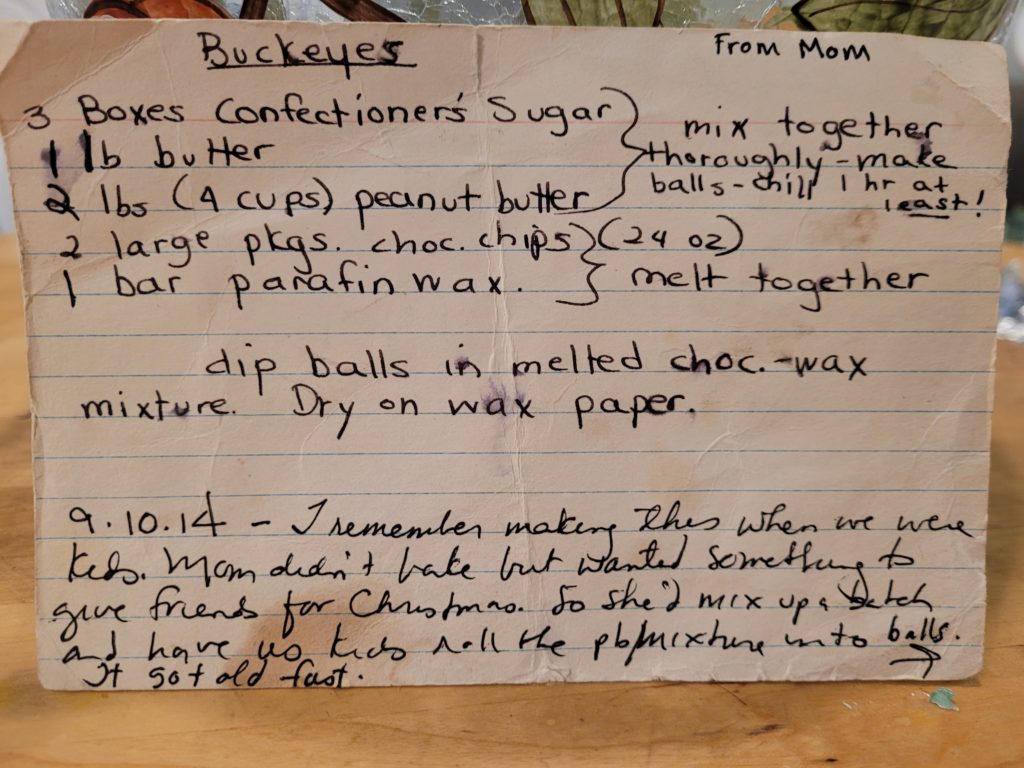
Next came the Friends-Are-Family Era, when a combination of beginner’s ability and limited funds led to heavy reliance on condensed soups and boxed cake mixes. A successful dinner during this era was marked by the willingness of a housemate’s boyfriend to eat the leftovers for breakfast the next morning. (To be fair, that wasn’t a particularly high bar.)
Ironically enough, an era that relied heavily on a can-opener was followed by the Can’t-Make-That Era, where chosen recipes promised culinary ecstasy but required a way better skillset than I possessed. Think anything that requires more than twenty ingredients and ten utensils (at least two of which I was guaranteed not to own) and leaves the kitchen a mess. Also think “inedible.”
Not surprisingly, very few recipes from the Can’t-Make-That Era have survived to present day.
The Feeding-Others Era has lasted the longest. Recipes have taken us to various American regions, to Europe, to the Mediterranean. We’ve visited Asia and South America while never leaving the dining room table. The recipes are responsible for an herb garden that doesn’t want to stop expanding and a love for spices and ingredients we’d never met before. It’s been a blast.
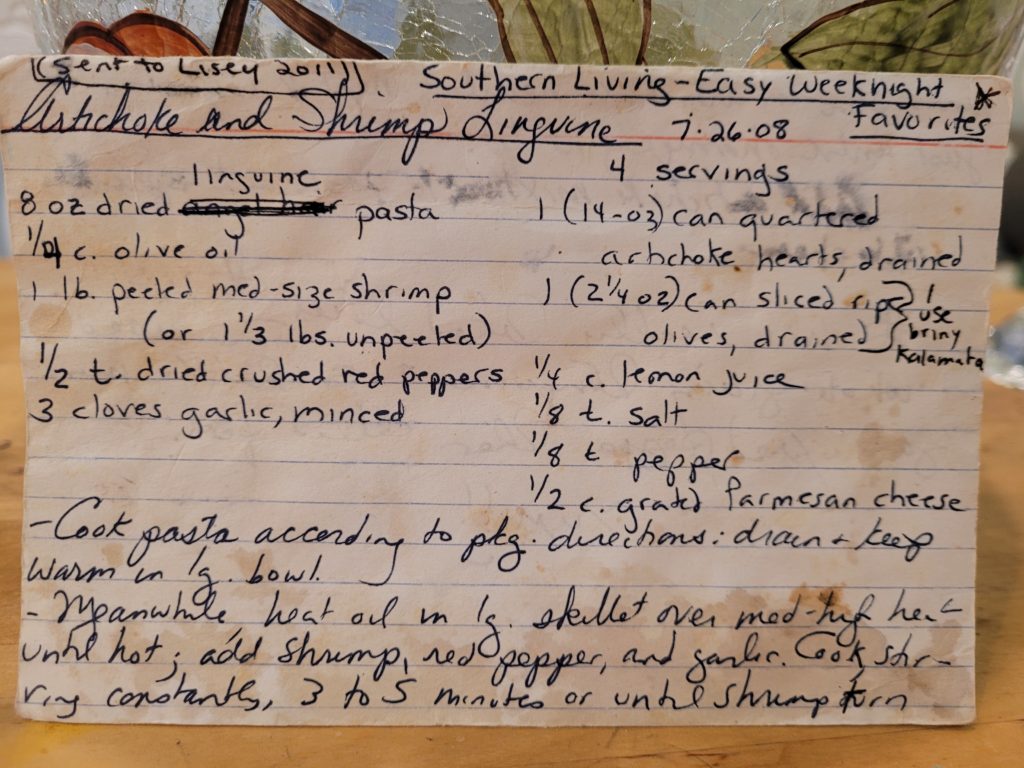
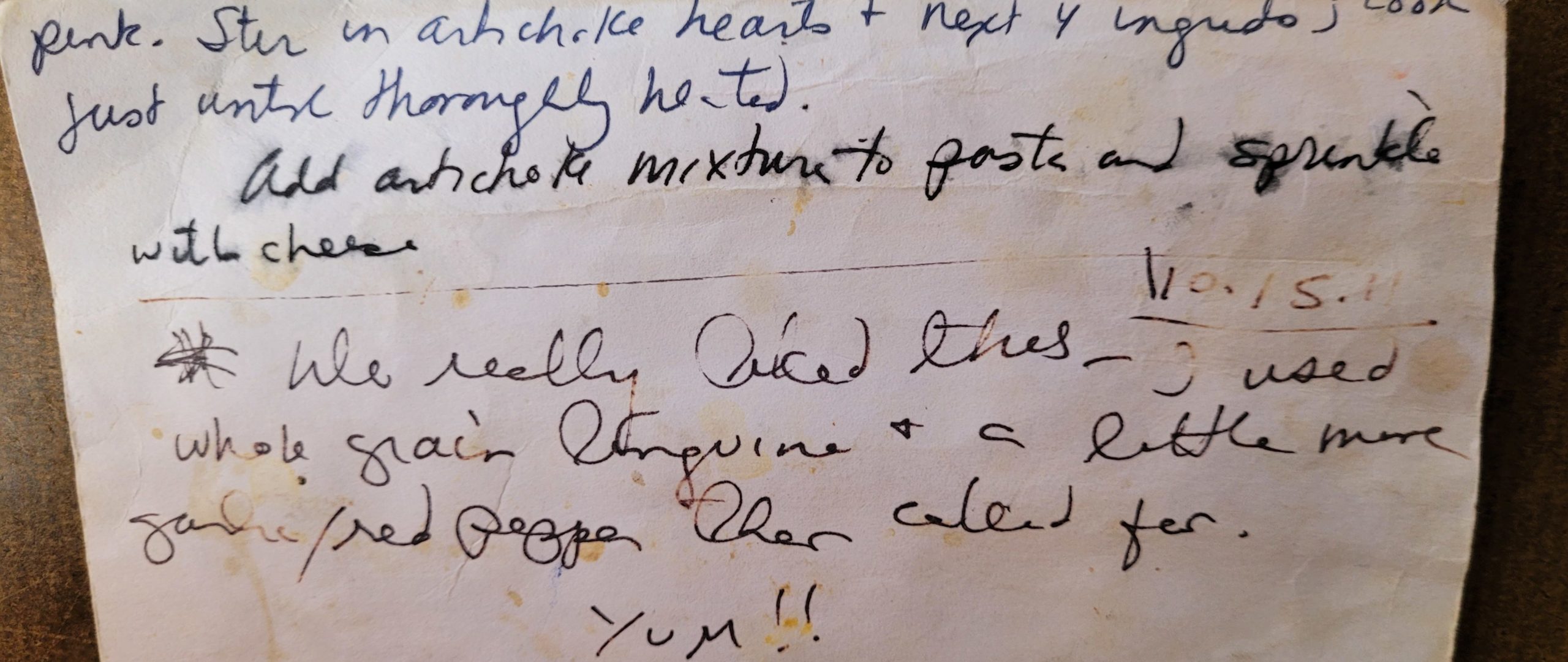
The Feeding-Others Era is waning, and I’m not sure I like the era lurking behind it. It’s not the fact that there are fewer opportunities now to share my recipes with others that makes me melancholy. It’s more that the day may come when I no longer care whether or not I share them at all.
But eras evolve in their own time, whether or not we’re ready for them. For now, I have high hopes for the Asian cookbook sitting on my counter.
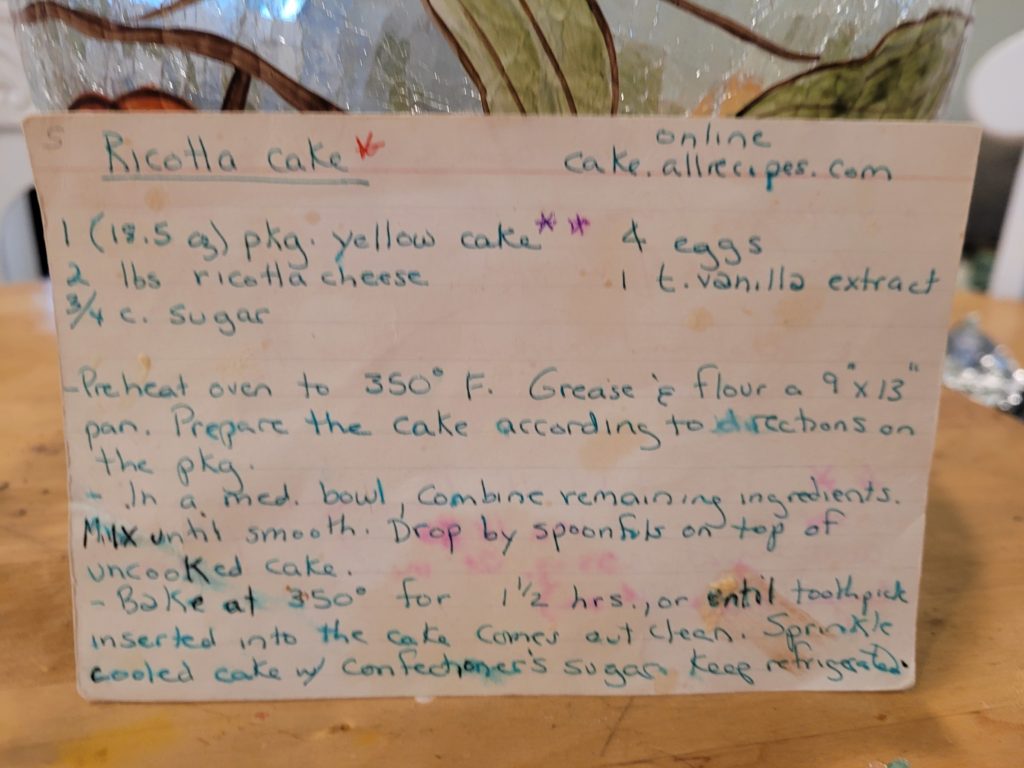
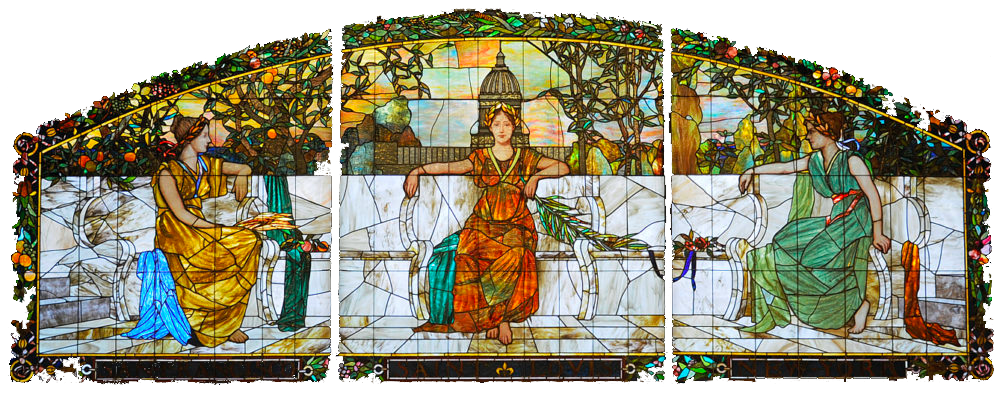







I love that the recipe cards are well loved with stains and worn corners. I have cards and cookbooks like that with my own changes scribbled in the margins. I particularly love the ones written for me by someone else. Like Mom’s sheet cake.
Maripat, I think that recipe cards are primary sources for social history. We learn so much from them, not only about the person who copied them, but about the world they lived in. One of my friends has lent me a recipe notebook put together by his aunt. She lived near Chicago in the early-to-mid 20th century. When is the last time you ever longed to make a carrot ring or a rutabaga souffle? How about a ham roll? (Mom’s sheet cake is a classic — I bet you get a flood of memories every time you look at that one. I should get it from you some time!)
I was going to say the same thing as Maripat about the splashed-on, dog-eared recipe cards! Think what a treasure trove you’re making for future generations!
I can well understand the reading-and-copying being a soothing activity, too.
Thanks, Kristina. Sometimes it feels like what I’m leaving future generations is One More Pile to sift through, but maybe good memories will mitigate that!